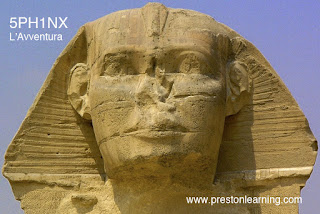Sonnet 69 by Pablo Neruda
Maybe nothingness is to be without your presence,
without you moving, slicing the noon
like a blue flower, without you walking
later through the fog and the cobbles,
without the light you carry in your hand,
golden, which maybe others will not see,
which maybe no one knew was growing
like the red beginnings of a rose.
In short, without your presence: without your coming
suddenly, incitingly, to know my life,
gust of a rosebush, wheat of wind:
since then I am because you are,
since then you are, I am, we are,
and through love I will be, you will be, we'll be.
- Since the author is a man, I am assuming the speaker is a man and is talking about a woman. There is only one speaker that speaks throughout the entire poem. The speaker is in love. [Sonnets are usually about love]
- The poem structure is first a statement "Nothingness is..." from then on it states a lot of metaphors and similes about what it feels like to be without "her." The poem is concluded with him stating that he cannot live without her.
- The main theme in the novel is "lack of love." More specifically, what it would feel like without love.
- The author uses a lot of commas to separate the different metaphors and similes.
- The poem mainly consists of similes and metaphors.
- The diction in this poem is not formal but very lyrical.
- The tone of the poem is romantic, jovial, and sincere.
- The main literary technique used in this poem is, as I have stated already, metaphors and similes.
- There does not seem to be an apparent rhyming scheme in the poem.
Sonnet 89 by Pablo Neruda
When I die, I wish your hands upon my eyes:
I want the light and the wheat of your beloved hands
to pass once more their cool touch over me:
to sense the softness that changed my fate.
I want you to live while I, asleep, await you.
I want your ears to go on hearing the wind.
I want you to smell the sea's aroma we loved so together,
and to go on walking the sands we walked.
I want what I love to go on living.
And you, whom I loved and sung above all else,
for all that, flourish again, my flower,
to reach for everything my love demands of you,
so that my shadow is passed through your hair,
so that all can know the reason for my song.
- Once again, I am assuming that the speaker is a man. He also refers to the person he is talking about as "flower." Women are usually referred to as flowers. There is one speaker throughout the entire poem.
- The poem structure is that the author first presents the thesis of the poem- What he wants to happen when he dies. The rest if the poem is just stating what he wants to happen.
- The main theme in the novel is love after death. Again, love is the major theme.
- The author uses a lot of punctuation to separate his ideas.
- The diction the poem is written in is once again very lyrical, poetic, and melodious.
- The tone in the poem is bittersweet. Bittersweet because he knows he will have to die and leave his love behind.
- The main literary technique used is apostrophe. He is addressing the woman that he loves in this poem and telling her what he wants her to do once he is dead.
- The poem does not have a set rhyming scheme.
She Walks In Beauty by George Gordon
She walks in beauty, like the night
Of cloudless climes and starry skies;
And all that’s best of dark and bright
Meet in her aspect and her eyes;
Thus mellowed to that tender light
Which heaven to gaudy day denies.
One shade the more, one ray the less,
Had half impaired the nameless grace
Which waves in every raven tress,
Or softly lightens o’er her face;
Where thoughts serenely sweet express,
How pure, how dear their dwelling-place.
And on that cheek, and o’er that brow,
So soft, so calm, yet eloquent,
The smiles that win, the tints that glow,
But tell of days in goodness spent,
A mind at peace with all below,
A heart whose love is innocent!
- The speaker is a man-he is talking about a beautiful woman and describes her beauty throughout the entire poem. There is only one speaker that talks throughout the entire poem.
- The poem is divided into three stanzas all of which have a rhyming scheme.
- The main theme of the poem is love as it pertains with a beautiful woman.
- This author ends most of his lines in commas, this separates all of his ideas (how the woman is beautiful).
- The diction in this poem is colloquial and not too formal. It easy to follow and read.
- The tone of this poem is very sincere, romantic, and uplifting.
- The main literary technique used frequently is imagery. The author effectively paints the image of a beautiful woman.
- The poem has an ABAB rhyming scheme.

